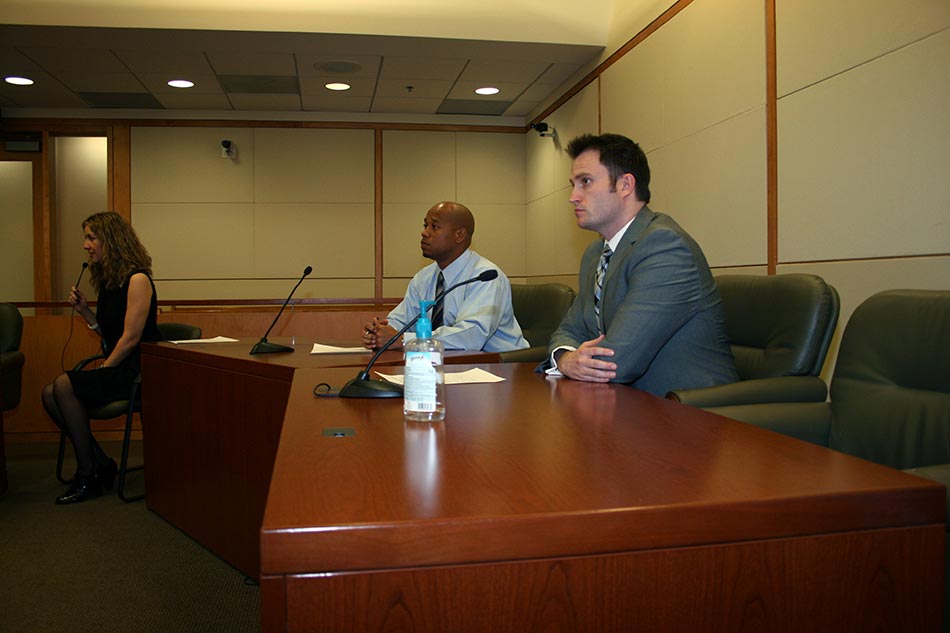IN THIS PHOTO: From left to right row - Mayela T., Translator; Gregory F., Juvenile Probation Officer; Sean C., Deputy County Attorney
Disposition Hearing
A Disposition Hearing is where consequences are imposed and has some similarities to a sentencing hearing in criminal court. Generally, before a Disposition Hearing, a Juvenile Probation Officer will prepare a written Disposition Report. That report will include all sorts of information about the juvenile and makes a recommendation about what consequences should be imposed.
At a Disposition Hearing, I will first summarize my reading of the Disposition Report, including the recommended consequences. Then, I will hear from the Juvenile Probation Officer; the prosecutor; any victims; the juvenile's parents; the juvenile's attorney and then the juvenile. I want to give the juvenile the last word before I make my decision. Although the juvenile is not required to tell me anything, I do like to hear from the juvenile and sometimes I will ask the juvenile some questions. After considering all of that information, I will decide what consequences should be imposed for what the juvenile has done. As noted above, consequences can include a variety of things, including:
- Summary; Standard or Intensive Probation;
- Payment of restitution (fines);
- Unpaid community service hours (work hours);
- Fines;
- Counseling or treatment;
- Loss of driving privileges;
- Drug testing;
- Placement on home arrest;
- Detention for up to one year; and
- Commitment to the Arizona Department of Juvenile Corrections to be held in secure care up to the juvenile's 18th birthday.
After imposing consequences, I tell the juvenile that if the juvenile thinks that I made a mistake, the juvenile can take an appeal to have another court look at what I did and I tell the juvenile what is required to take an appeal. If the juvenile has any questions about the right to appeal, I encourage the juvenile to speak with the juvenile's attorney before leaving court.

